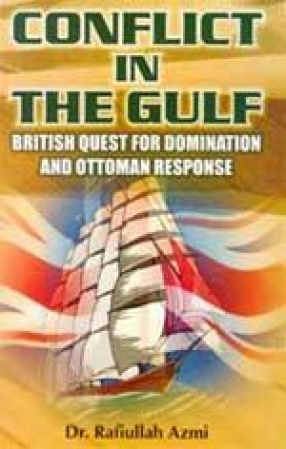The Ottoman Sultan assumed the mantle of Caliphate following the conquest of Egypt in 1516. Since then every Ottoman Sultan considered it his sacred duty to defend Muslim countries. The Gulf region became part of the Ottoman Empire when they came forward to defend Arabs against the Portuguese onslaught. All Arab lands, except Morocco, were incorporated into the Ottoman Commonwealth in the short period between 1516-1541. However, this political as well as emotional relationship had to subsequently face serious challenge from the expansionist Europe. With the dawn of renaissance, Europeans began to venture out to explore the world. Thus the process of subjugation of Islamic world began. Due to its strategic location and consolidation of the British rule in India, the Gulf region acquired a very significant place in the British imperial strategy. To safeguard it imperial interests in India, which was known as a jewel in the British crown, it became necessary for Great Britain to keep the coastal areas of the Gulf region as an exclusive preserve. The British used every possible means –overt and convert – to achieve their imperial objective. The clash between the Ottoman and the British empire became inevitable toward the end of the nineteenth century when the former tried to assert her authority in different parts of the Gulf region. But the Ottoman Empire could not rise to meet the challenge of the British imperial might and machination. Thus Great Britain ultimately succeeded in its design in 1916 when at the British instigation Sharif Husain of Mecca declared revolt against the Ottoman Empire. It not only ended the formal relationship between the Ottoman Empire and Arabs but also culminated in establishing Pax-Britanica in the region. Through the present study an endeavour has been made to throw light on various facets of the British policy, strategy and shenanigans used to increase its domination in the region. An effort has also been made to critically analyse the Ottoman response which could be characterized the lack of determination and material resource. The subject matter of the book is of great significance in the present context of the USA endeavour to establish its unprecedented hegemony in the region. What the USA is now doing in the region in the name of establishing ‘peace, stability and demoracy’ is not a new game. It has a parallel in the history of the region. Its roots can be traced to the British quest for domination in the region which is the central theme of the book. The British started and mastered this game in order to establish and safeguard its imperial domination. Thus is order to understand the contemporary developments in the Gulf, it is necessary to peep into the past. The significance of the book could be understood from this perspective.
Conflict in The Gulf
In stock
Free & Quick Delivery Worldwide
reviews
Bibliographic information
Title
Conflict in The Gulf
Author
Edition
1st ed.
Publisher
ISBN
8188684058
Length
xx+266p., Tables; Maps; References; Appendix; Bibliography; Index; 23cm.
Subjects





There are no reviews yet.